Why study Nautical Science at LJMU?
- This programme is a 120 credit top up degree to be studied over one year, full time
- State-of-the-art teaching facilities including a full size ship's bridge simulator
- Provides the first step towards entering shore-based careers in marine surveying, ship management, consultancy, research and maritime education
About your course
Completing the BSc (Hons) Nautical Science Top up Degree at Liverpool John Moores University will enable you to graduate as a Maritime professional to develop a career in the shore based Maritime sector.
Moving consumer goods in containers, vehicles on car decks, or passengers on sundecks relies on the expertise and professionalism of ships' officers to bring them safely to port, and the professionalism of shore staff to manage the fleet.
We have a proud tradition of teaching maritime and nautical studies at LJMU, having originally provided courses as Liverpool Nautical College. However this course is firmly focused on the present and future needs of the industry with its state-of-the-art facilities, including a 360-degree ship's bridge simulator system and teaching from staff with extensive industrial experience.
Course modules
What you will study on this degree
Further guidance on modules
Modules are designated core or optional in accordance with professional body requirements, as applicable, and LJMU’s Academic Framework Regulations. Whilst you are required to study core modules, optional modules provide you with an element of choice. Their availability may vary and will be subject to meeting minimum student numbers.
Where changes to modules are necessary these will be communicated as appropriate.
Core modules
Nautical Technology
20 credits
20 credits
This module will provide you with the skills necessary to identify and demonstrate awareness of contemporary issues in the application of nautical technology.
Project
40 credits
40 credits
This module will allow you to develop your knowledge, skills and general expertise in relation to a technical, operational, management, business or policy topic related to their programme of study.
Optional Modules
Maritime Finance and Economics
20 credits
20 credits
The aim of the module is to develop a critical awareness of the economic environment in which ships are financed, traded and operated and to analyse a range of managerial issues in the maritime industry, with particular reference to the management of capital and the appraisal of investment.
Nautical Management
20 credits
20 credits
This module will prepare you to be an effective manager within a developing maritime sector.
Professional Competence 1
20 credits
20 credits
The aim of this module is to evaluate current academic programmes supporting seafarer training and to prepare you for higher professional Stability qualifications.
Global Supply Chain Management and Multimodal Logistics
20 credits
20 credits
The aim of this module is to develop knowledge and understanding of global supply chain management from the upstream functions of procurement and operations to the downstream decision making framework for the multimodal transportation of goods.
Professional Competence 2
20 credits
20 credits
This module will evaluate the professional standards in seafarer training to prepare you for higher professional Navigation qualification.
Law and Insurance
20 credits
20 credits
This module will provide an in-depth analysis of the topics of Admiralty Law and of the modern law of Marine Insurance.
Professional accreditation/links
We have strong links with the marine industry both in the UK and overseas and work closely with the MCA and MNTB across all of our Nautical programmes.
Your Learning Experience
Excellent facilities and learning resources
We adopt an active blended learning approach, meaning you will experience a combination of face-to-face and online learning during your time at LJMU. This enables you to experience a rich and diverse learning experience and engage fully with your studies. Our approach ensures that you can easily access support from your personal tutor, either by meeting them on-campus or via a video call to suit your needs.
Teaching at the University is via a combination of lectures, interactive seminars, online activities and informal small-group tutorials, accounting for approximately 10-12 hours of your weekly study time. In addition you will be expected to spend at least 20-25 hours in private study. Online learning materials can be accessed any time from our virtual learning environment, Canvas, and our library so you can study at a time and pace to suit you.
Those students completing Mates Certification alongside the degree will opt for the professional modules which incorporate SQA and orals preparation, and far more contact hours than other modules.
Work-related Learning
The Top-up degree incorporates SQA and orals preparation for Mates level certification if that route is selected. In order to qualify for this route, applicants need the required sea time and sign off for STCW management levels content. This is usually complied with through FD or HND Certification.
There will be additional costs for the completion of short courses by students following this route.
Dedicated personal tutor, plus study skills support
While you are based at the university, you will be allocated a personal tutor who will provide one-to-one support and guidance. As well as discussing day-to-day course-related issues with you, they will help you to monitor your progress and start planning for your future career.
Assessment varies depending on the modules you choose, but will usually include a combination of exams and coursework.
Each module is individually assessed, either by exam and coursework or just coursework, depending on the subject. The more practical the module, the more likely it is that you will be continually assessed throughout the year. You will receive marks for each piece of work, as well as constructive feedback via Canvas, face-to-face or as written comments. This will help you to identify your strengths as well as the areas where you may need to put in more work
Where you will study
What you can expect from your School
This programme is delivered in the Byrom Street complex of LJMUs City Campus. Here you'll find high quality lecture theatres, meeting and seminar rooms plus social spaces and a large café. The Avril Robarts Library is just minutes away on Tithebarn Street.
I am genuinely impressed at my student experience during the past two years. The course is well-structured and is managed by an extremely knowledgeable team of lecturers. The level of support has been wonderful. I have had a very positive experience as a student and I would not hesitate in recommending the course or university to others.
Course tutors
Career paths
You will enjoy varied career opportunities both in the UK and overseas.
- This combination of sea experience and academic qualifications, or simply the academic qualification provided by our Nautical Science Top-up degree, is in demand in many shore-based careers such as ship management, marine surveying, pilotage, marine insurance and maritime business.
- Alternatively, some of our graduates decide to further their studies on one of our postgraduate masters or research programmes
Student Futures - Careers, Employability and Enterprise Service
A wide range of opportunities and support is available to you, within and beyond your course, to ensure our students experience a transformation in their career trajectory. Every undergraduate curriculum includes Future Focus during Level 4, an e-learning resource and workshop designed to help you to develop your talents, passion and purpose.
Every student has access to Careers Zone 24/7, LJMU's suite of online Apps, resources and jobs board via the LJMU Student Futures website.
Fees and funding
Tuition Fees:
- Home full-time per year:
- £9,250
Fees
The fees quoted above cover registration, tuition, supervision, assessment and examinations as well as:
- library membership with access to printed, multimedia and digital resources
- access to programme-appropriate software
- library and student IT support
- free on-campus wifi via eduroam
Additional costs
Although not all of the following are compulsory/relevant, you should keep in mind the costs of:
- accommodation and living expenditure
- books (should you wish to have your own copies)
- printing, photocopying and stationery
- PC/laptop (should you prefer to purchase your own for independent study and online learning activities)
- mobile phone/tablet (to access online services)
- field trips (travel and activity costs)
- placements (travel expenses and living costs)
- student visas (international students only)
- study abroad opportunities (travel costs, accommodation, visas and immunisations)
- academic conferences (travel costs)
- professional-body membership
- graduation (gown hire etc)
Funding
There are many ways to fund study for home and international students. From loans to International Scholarships and subject-specific funding, you'll find all of the information you need on our specialist funding pages.
- International full-time per year:
- £18,250
Courses_UG_Fees_Funding_Subheading_International
Liverpool John Moores University is committed to supporting international students by providing a range of scholarships and flexible payment plans to help students manage their tuition fees.
Scholarships
LJMU provides a variety of scholarships to support international students. Scholarships are available to self-funded students who have accepted their offer and met all the conditions outlined in their offer letter. Students must also demonstrate that they can cover living costs, travel, and other expenses associated to studying at the university. Postgraduate scholarships include tuition fee reductions and are often offered in partnership with external funding organisations.
All self-funded international students are eligible for an automatic scholarship worth up to £4,000. For more details and to view our full list of scholarships, visit the international scholarship webpages.
Deposit
All students must pay a £5,000 deposit before they can receive their CAS letter.
For more information view our deposit page.
Tuition Fee Payment Plan
After paying their £5,000 deposit, students have the option to pay their fees in full or in three equal instalments minus any internal scholarships and discounts. There are two payment options available for international students. You can either pay your tuition fees in full before enrolment or opt for a payment plan. With the payment plan, you can pay your fees in three instalments after making your £5,000 deposit. The first instalment is due before enrolment.
All payments should be made through Flywire. Full details can be found in the How to Pay Guide.
Early Bird Tuition Fee discount
We are excited to introduce a £500 Early Payment Discount to all self-funded international students. Eligible self-funded students who pay their fees by the required deadlines will get a discount which will be automatically deducted from the 1st year of tuition fees.
To see the required deadlines please visit the webpage
Entry requirements
Please choose your qualifications below to view requirements
Grades/points required from qualifications:
Work out how many UCAS points your qualifications are worth using the UCAS Tariff Calculator.
Qualification requirements
NVQ
Students with a FDSc or HND in a Nautical/Maritime related area from a UK institution. Evidence of research methods capability at level 5 will allow direct entry, but support will be offered to students to develop their research skills prior to entry, where no evidence of previous learning in this area is available. Other qualifications which are equivalent to the above, may also support admissions onto the programme. Students with the entry qualifications will be awarded 120 Level 4, and 120 Level 5 credits by RP(E)L (Recognition of Prior or Experiential Learning) based on mapping the content of the entry qualifications against standard STCW content across programmes. All applicants with a UK Chief Mate Certificate of Competence will be eligible for RP(E)L. Applicants with a UK Officer of the Watch Certificate of Competence incorporating Management level STCW content will also be eligible for RP(E)L. Students with equivalent qualifications will be mapped for RP(E)L against the Operational and Management level content of STCW as contained in the LJMU DipHE in Nautical Science, or against the LJMU BSc(Hons in Maritime Business Management
International requirements
Other international requirements
Where English is not the applicant's first language, an IELTS score of 6.0 or equivalent within the two years prior to applying for the programme.
Please Note: All international qualifications are subject to a qualification equivalency check.
How to apply
Securing your place at LJMU
UCAS is the official application route for our full-time undergraduate courses. Further information on the UCAS application process can be found here https://www.ljmu.ac.uk/study/undergraduate-students/how-to-apply.
Your university life
From accommodation and academic support to clubs and societies. Find out what LJMU has to offer.
Talk to our students
Connect with a current LJMU student for advice and guidance on university life, courses and more.
See what our students are saying
At LJMU we want you to know you're making the right choice by studying with us. You can see what our students are saying about their experience with us through their reviews on the following websites:
Related Links
News and views
Browse through the latest news and stories from the university


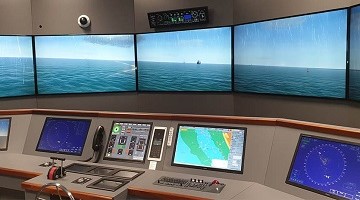
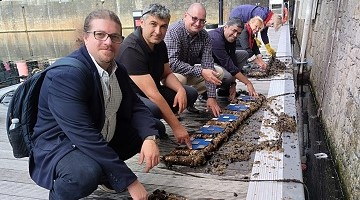
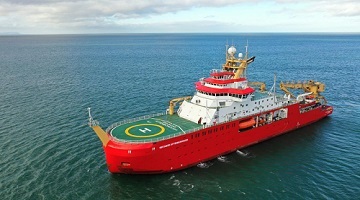

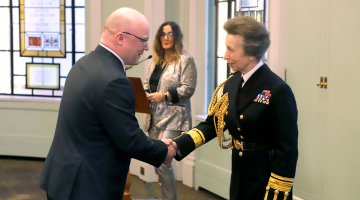
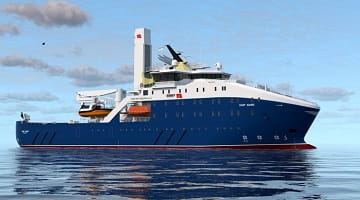


The university reserves the right to withdraw or make alterations to a course and facilities if necessary; this may be because such changes are deemed to be beneficial to students, are minor in nature and unlikely to impact negatively upon students or become necessary due to circumstances beyond the control of the university. Where this does happen, the university operates a policy of consultation, advice and support to all enrolled students affected by the proposed change to their course or module.
Further information on the terms and conditions of any offer made, our admissions policy and the complaints and appeals process.










